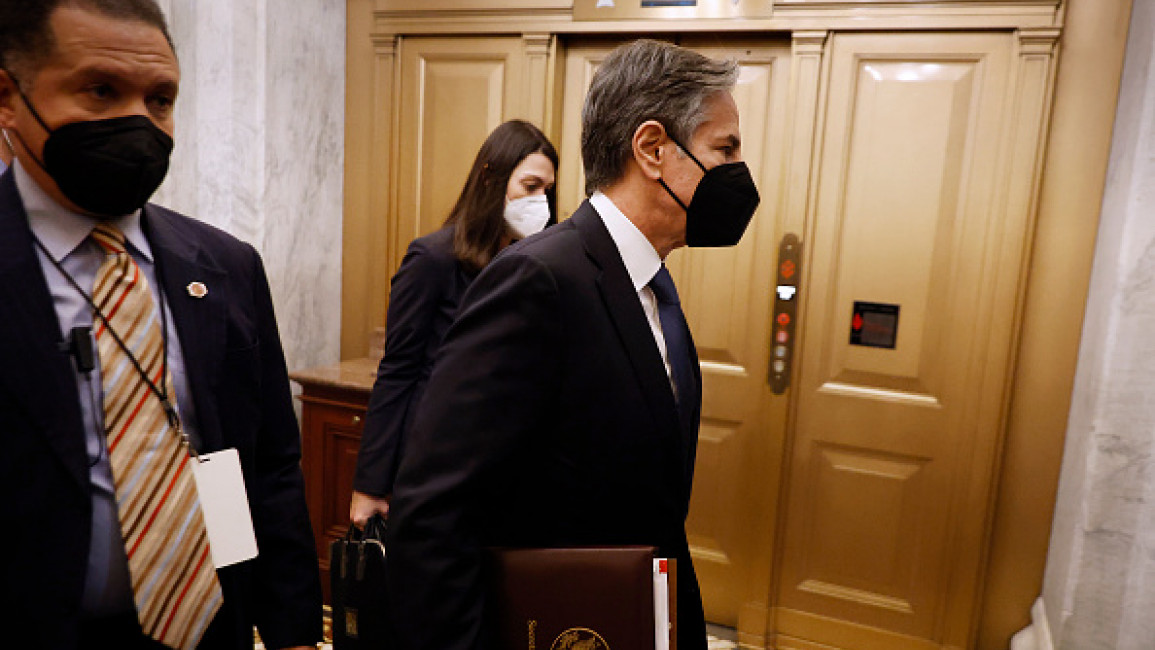US Congress considers resolution to try Assad regime for war crimes
A draft resolution calling for the creation of an international mechanism to try the Syrian regime for war crimes was scheduled to be presented in US Congress on Tuesday.
The resolution says the US ambassador to the UN should call for "the establishment of an international mechanism to prosecute the perpetrators of war crimes, crimes against humanity and human rights violations in Syria."
The Syrian regime is accused of continually committing war crimes against its own population in the 12 years since its violent crackdown on protesters during the 2011 Syrian uprising.
Mohammed Alaa Ghanem, the head of policy at the Syrian American Council, said that the resolution was brought forward in coordination with Washington-based Syrian advocacy groups.
It comes as Arab states break the over-a-decade-long diplomatic isolation of Syria and normalise relations with the Assad regime, a move Washington has condemned.
Ghanem said that the international mechanism could be similar to tribunals set up to prosecute war crimes in places such as Rwanda and Sierra Leone.
The UN Security Council (UNSC) is the body that typically creates international tribunals; however, the resolution calls for a vote in the UNGA to avoid a Russian veto on the security council.
Russia has previously blocked any UNSC resolutions that would create accountability for its ally, Bashar al-Assad.
In 2016, the UN set up the International, Impartial and Independent Mechanism in Syria (IIIM), which collects and prepares evidence to aid in the prosecution of those responsible for war crimes in Syria.
The IIM does not carry out prosecutions, instead it gives evidence it collects to individual countries carrying out trials against people suspected of war crimes in Syria.
Trials against Syrian officials have been carried out in Germany, France and other EU countries.
On 12 July, Canada and the Netherlands announced they would be instituting proceedings against Syria before the International Court of Justice for torture and other “cruel” treatments of its own population.


![President Pezeshkian has denounced Israel's attacks on Lebanon [Getty]](/sites/default/files/styles/image_684x385/public/2173482924.jpeg?h=a5f2f23a&itok=q3evVtko)



 Follow the Middle East's top stories in English at The New Arab on Google News
Follow the Middle East's top stories in English at The New Arab on Google News


